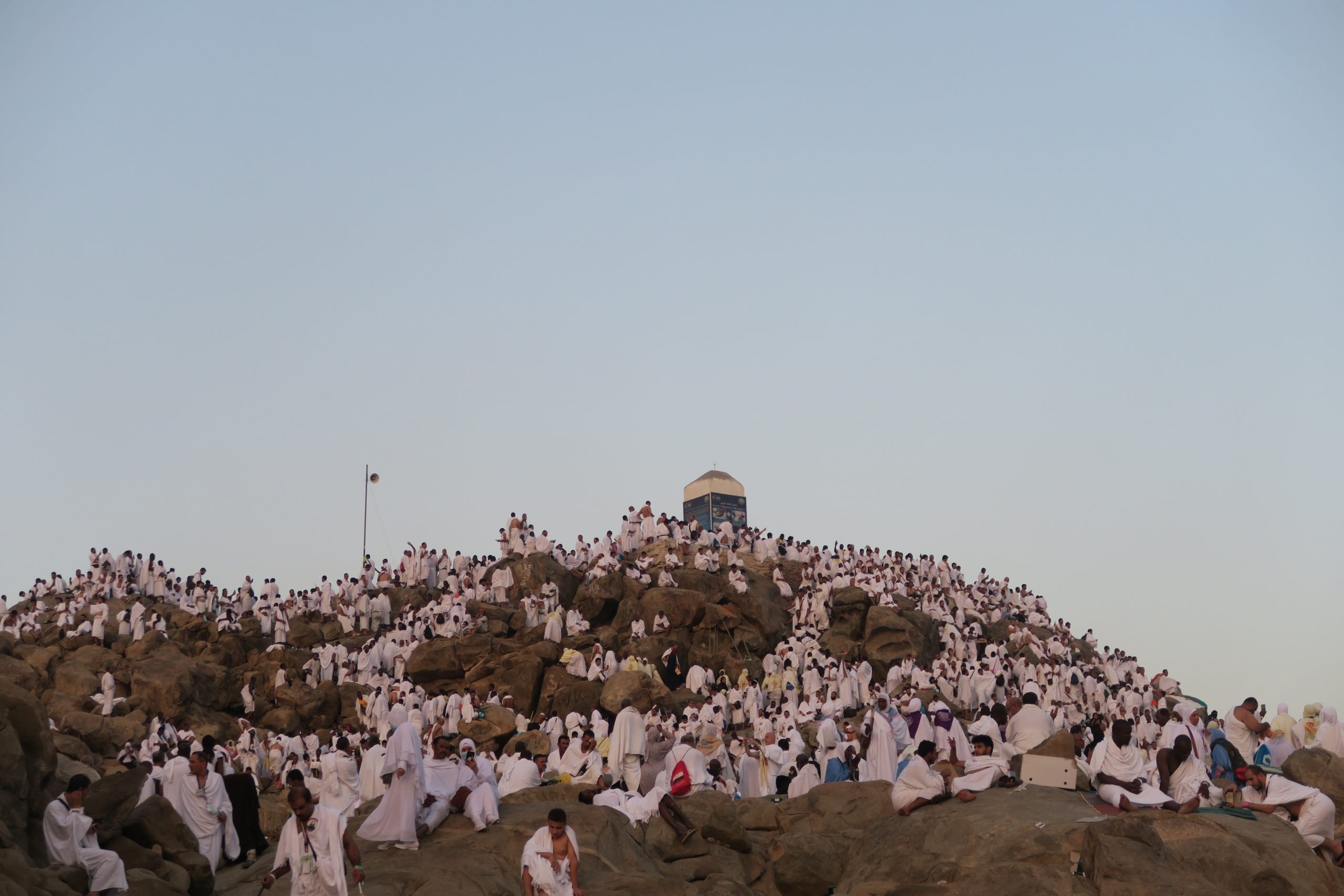Fasting on this day is said to expiate sins for the following year.
The Day of Arafah in the Islamic lunar calendar falls on Tuesday 27th June, for the Gregorian calendar of 2023, which Muslims across the world consider to be one of the most important days in the year.
Observed on the 9th day of Dhul-Hijjah, just before Eid Al Adha, the day is among the first 10 days of the month which are believed to be “the finest days” in the Islamic year, which Muslims observe by fasting, supplicating and worshipping God in a multitude of ways.
A day of supplication and mercy
So what is the Day of Arafah?
Arafah, or Arafat, is an expansive desert plain located just outside the city of Mecca in Saudi Arabia.
Each year, as part of the Hajj pilgrimage, millions of Muslims gather on this plain on the 9th day of Dhul-Hijjah. Clad in simple white garments, the pilgrims congregate on Arafat from dawn till dusk, worshiping God and seeking His forgiveness.
This ritual was established by the Prophet Muhammed as one of the pillars in the pilgrimage. It was also on the plain of Arafat that the Prophet, in the final year of his life, delivered his last sermon to a large congregation of Muslims.
The verse 5:3 in the Qur’an was revealed to the Prophet Muhammad while standing on the plain of Arafah, commemorating the completion of the religion of Islam.
This Prophet’s sermon emphasised the principles of justice, equality, and sanctity of life and property.
Why is it important?
The Day of Arafah is considered a cornerstone of the Hajj pilgrimage, one of the five pillars of Islam.
Prophet Muhammad once said, “Hajj is Arafah,” indicating the immense importance of this day in the pilgrimage rites. If the Day of Arafah is missed, one’s Hajj is deemed incomplete.
Yet, the significance of the Day of Arafah extends beyond the pilgrims. For Muslims around the world, this day is observed as a day of fasting, reflection, and sincere supplication.
Fasting on this day is said to expiate sins for the following year.
Many prophetic narrations state the importance of the day, including a Hadith in which the Prophet is believed to have said, ‘There is no day on which Allah (SWT) frees people from the Fire more so than on the Day of Arafah. Indeed, He draws near and then boasts of them to the angels then says, “What do these want?”
The day is followed by Eid al-Adha, or the ‘Festival of Sacrifice,’ one of the two main Islamic holidays. This festival commemorates Prophet Ibrahim’s unwavering faith and willingness to sacrifice his son as a sign of obedience to God, and it is marked by the ritual of animal sacrifice, charity and communal meals.
For Muslims, the day is a pinnacle of spiritual journey and faith. Whether in the vast plain of Arafat during Hajj or in their homes around the world, Muslims spend this day in prayer and introspection, seeking closeness to God.
As the day dawns each year, it brings with it a unique opportunity for Muslims all round the world to reflect, repent and rejuvenate their faith.







